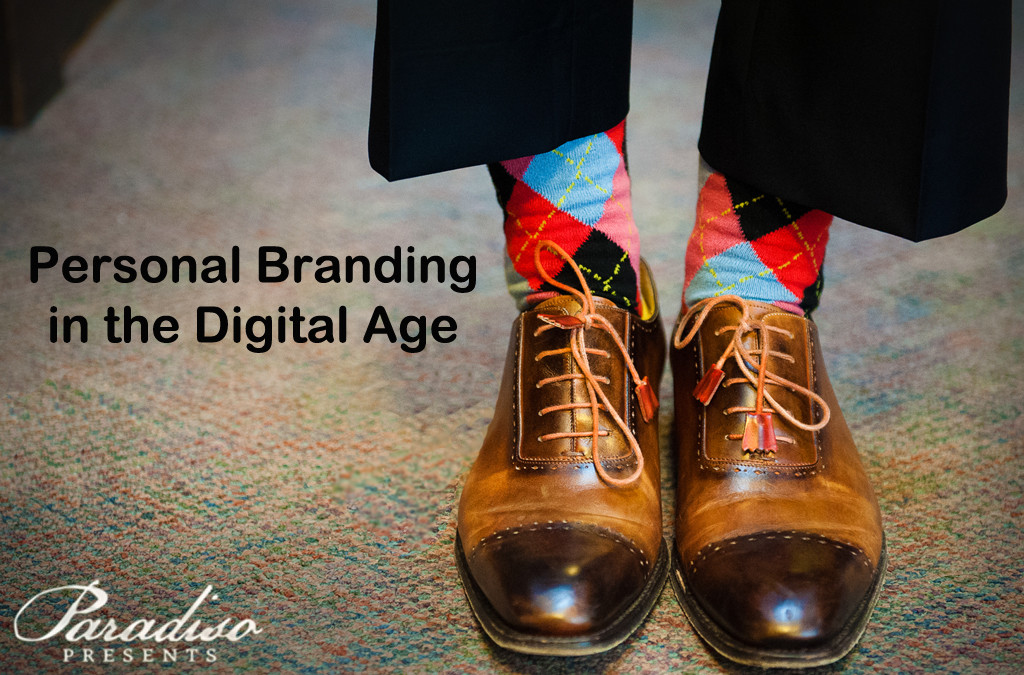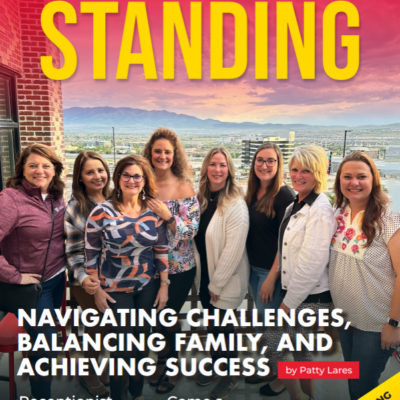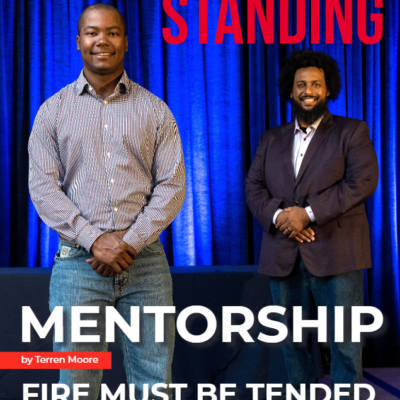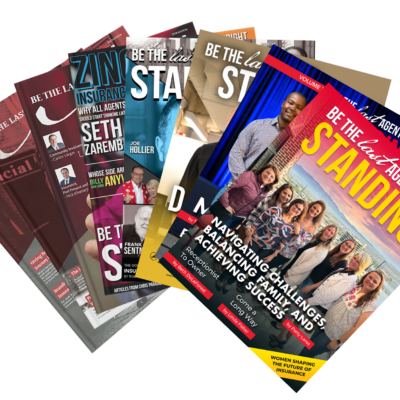The idea of personal branding is relatively new in today’s complex marketing world. The first mention of the concept “personal branding” online was in 1997 when Tom Peters wrote an article for Fast Company titled The Brand Called You. However, in the last decade, the importance of personal branding has grown astronomically as new social media tools like Google+, Pinterest, Facebook, Twitter, LinkedIn, and Instagram have enabled anyone to easily express themselves online.
When most of us think of brands, we think of logos, advertising campaigns, and big corporations. Many of us love brands that we can relate to, and have a personal connection with, such as Tom’s, and also detest others. The reason we choose a brand is not just for the color of a logo or its design, but for the reputation and quality that it stands behind (for example, Tom’s shoes – for every pair purchased they give a pair away to someone in need). Similarly, our individual brand is created by the personal values that we believe in and how we build our reputation by our contributions to our communities, whether it’s online or offline. Your brand is your everything.
Guide to Personal Branding in the Digital Age
What’s great about personal branding is that it isn’t about the products we sell or the services we offer, but instead, it’s all about bringing value as human beings, and how we choose to express ourselves. We all have something we want to express to the world. Whether you’re an artist, musician, writer, entrepreneur, insurance agent, or agency owner, or just really passionate about your favorite hobby, you have something meaningful to offer to the world.
“You have enemies? Good. That means you’ve stood up for something, sometime in your life.”
Now, it is easy to start a blog, YouTube channel, or a website to express your passions, promote something that you’ve created, and connect with people (prospects and/or clients) who have similar interests. The barriers to entry for expressing yourself online or starting a digital business have dropped so much in the last decade that there really isn’t anything stopping you from diving right in and separating yourself from others in the industry. As an independent insurance agent you need a brand.
Having a personal brand and a reputation around it is not just important for sharing what you’re passionate about. An estimate (that blew my mind) was that 80% of jobs are now found in the informal job market through networking and personal connections, which shows that your personal brand matters in everything we do, whether we are looking for a job or we are looking for prospects to sell insurance to, I will once again remind you your brand is your everything.
Identify Your Personal Brand and Express Yourself
Here’s a quick guide that I used to create my agency’s brand, including some different options for establishing yourself online and building your personal branded network.
First – Identify your personal brand.
Creating a personal brand starts with a little research into your individual talents/interests you may have.
Identify your passion and study it (become the expert) as much as you can so you can grow your expertise and be able to share that with the social world. Ask yourself questions about what you really love to do and love to learn about, and then also what you want to share with others. You can only be successful if you’re sharing your passions. After that, do additional research until you become the expert, and offer a unique and or unconventional angle on your passion. You need to separate yourself from the herd; be different, because people want to see the real YOU.
What makes YOU different from your competition? Having a personal brand is about differentiating yourself. Yes, it’s about expressing your own unique creativity and personal style, so really it’s all about YOU. We all have natural talents. The key to your brand is to express happiness which comes from your passions, because this allows you to find ways to meaningfully develop your talents, and combine them with your livelihood. You sell insurance. Great. Why should I buy from you though? Please don’t say “service”, because every agent says “service” and you need to remember to be different.
Develop your core message. Create your own mission statement that identifies exactly who you are and what you stand for. Take some time to study other people with similar brand messages, and try to present your own unique view on your topic and/or passion. Then, once you’ve identified your passion and created your style with your well put together message, you’re ready to start developing your very own personal website, and I hope you take a peek at mine here at www.chrisparadiso.com.
Secondly – Set up your personal branding website.
Yes! Getting your own .com and starting a website is a lot easier than you think, and it’s not an option in today’s internet world. Each and every insurance agent, whether you’re an agency owner or an outside sales rep, needs their own personally branded website.
Get your personal website and then start your blog. If you want to look professional, I strongly recommend buying your own personal domain name. I personally use www.wordpress.org because of its ease of use, and I feel other agents should start there too. There are other easy to use sites such as Tumblr, but I personally love WordPress, but try to figure out what works best for you. Once you open your blog, please make sure to blog regularly, because blogging 3 times a month just isn’t enough. Try to blog 2 times a week, and try to be consistent on the those days and times your posting. Consistency is key.
Sign up for Google Analytics. Signing up for Google Analytics is FREE. Yes, a 4 letter F word that I love, FREE. To see how prospects discover your website, share your personal branded content, and how they interact on your website, Google Analytics is an incredible free web service that everyone must be using to understand who is using your website and why. I highly recommend familiarizing yourself with its interface (or hand it off to a marketing manager), because you can do just about anything necessary to improve a website through Google Analytics. The first step is realizing what prospects like and don’t like about your site, which you can understand by the data collected.
Thirdly – Social Media
On your personal branded Social Media platforms, most people prefer interacting with real people, not fake people, marketing managers, or faceless brands as many agencies are practicing. Open social networks like Google+, Instagram, Facebook, Pinterest and Twitter, for example, are much more effective if you are expressing yourself as an individual, rather than an agency. I’m not suggesting you don’t also have an agency brand too though.
Get a Twitter account both for you personally and for your agency. I actually find Twitter to be the most useful and fun Social Platform because you can follow anyone you find interesting and easily interact and with open dialogue with people such as best-selling authors, insurance CEO’s, business experts, and people you simply find fascinating. It’s often with a single tweet you can connect with anyone you wish to unlike the traditional ways of marketing. It’s also a great insurance agency content discovery tool where you can start or join conversations around topics/articles that resonate with you and/or your agency. Yes, Twitter is also very important to Google and search indexing, so I would tell you that you MUST have a Twitter account and stay active on it.
Create a Facebook Page if you don’t have one. I’m assuming everyone has a Facebook account, because I would be very surprised to run across someone that doesn’t have one open already. You will want to separate your personal Facebook account from your website-related content feed, so I recommend making a custom Facebook Page with a graphic designer like we do here at Paradiso Insurance. In today’s world, everything has gone visual, and every agency needs to use a graphic designer. Remember, hire a professional; just as independent agents think of people who go to the Lizard or Flo, go to a pro and get the work done right.
Customize your LinkedIn Profile, and become an All-Star. Several recent article I have read on studies have shown that 70% of businesses recruit on LinkedIn, yes 70%. To be recruited,watched, or reviewed by a prospect on LinkedIn, you need to make sure your Profile is rated as 100% complete which requires a few hours of your time and make sure you have a professional photograph. If you don’t have a photo what is that saying about you? Lets remember LinkedIn is a B2B social platform take it series and complete correctly.
Create a YouTube Channel for yourself personally and also for your agency. If you’d rather create fun but respectful professional video blogs than write content, YouTube is an amazing platform where anyone with something interesting to say can find an audience. Also it’s owned by Google and remember Google makes the rules. If you’re not sure where to start either call me, YouTube it, or if you like to read, I recommend reading the YouTube Creator Playbook. YouTube is must – please don’t wait get into this arena and start to play ball.
Get a Pinterest account because it’s a growing social platform and also helps aid the SEO of your agency and your personal brand, because it’s a visual social platform. Pinterest is powerful, because visual content makes up 93% of human communication, and not only that, visually appealing posts provide 94% more engagement (stats provided by HubSpot). Signing up is free, easy, and can be done at any time, so get started!
Get a Google+ account too because people are in this arena. Yes there aren’t as as many using this platform as much as Facebook, but there are still 100s of millions users on Google+, and it’s owned by Google. Is your agency using Google+? Google+ is a great way to share the content you find interesting directly from Google’s search results page and YouTube but for agents it’s a great tool for niche marketing. Google also provides a lot of really useful tools to manage your own Personal Branding. I recommend you explore how you appear online with their “Me On The Web” service, which is accessible from your Google Dashboard. Yes, Google provides market research tools like their Keyword Planner and Insights For Search, which can help you identify the right keywords to optimize your personal branded website and or your agencies.
Actively participate in online conversations. The key to finding your community online is to identify with the right audience then participate in online forums within your targeted audience, social communities, and groups on Facebook, Instagram, Pinterest, and LinkedIn Groups. To find interesting online conversations around the topics that interest you, use Google Alerts, Social Mention, Twitter Search, Social Oomph, and Google to search for keywords related to these topics.
Your personal brand will allow you to bring in an ROI in the social world.






Great Article Chris!
Great read Chris. Guest blogging is definitely a great way to drive traffic, 69% of businesses attribute their lead generation success to blogging. Can’t argue with the numbers.
Best,
Mike Demko
Thanks guys!
Just like that Chris selflessly lays out the blue print for a successful personal branding campaign. You cant argue with the results! Great job my friend!!!